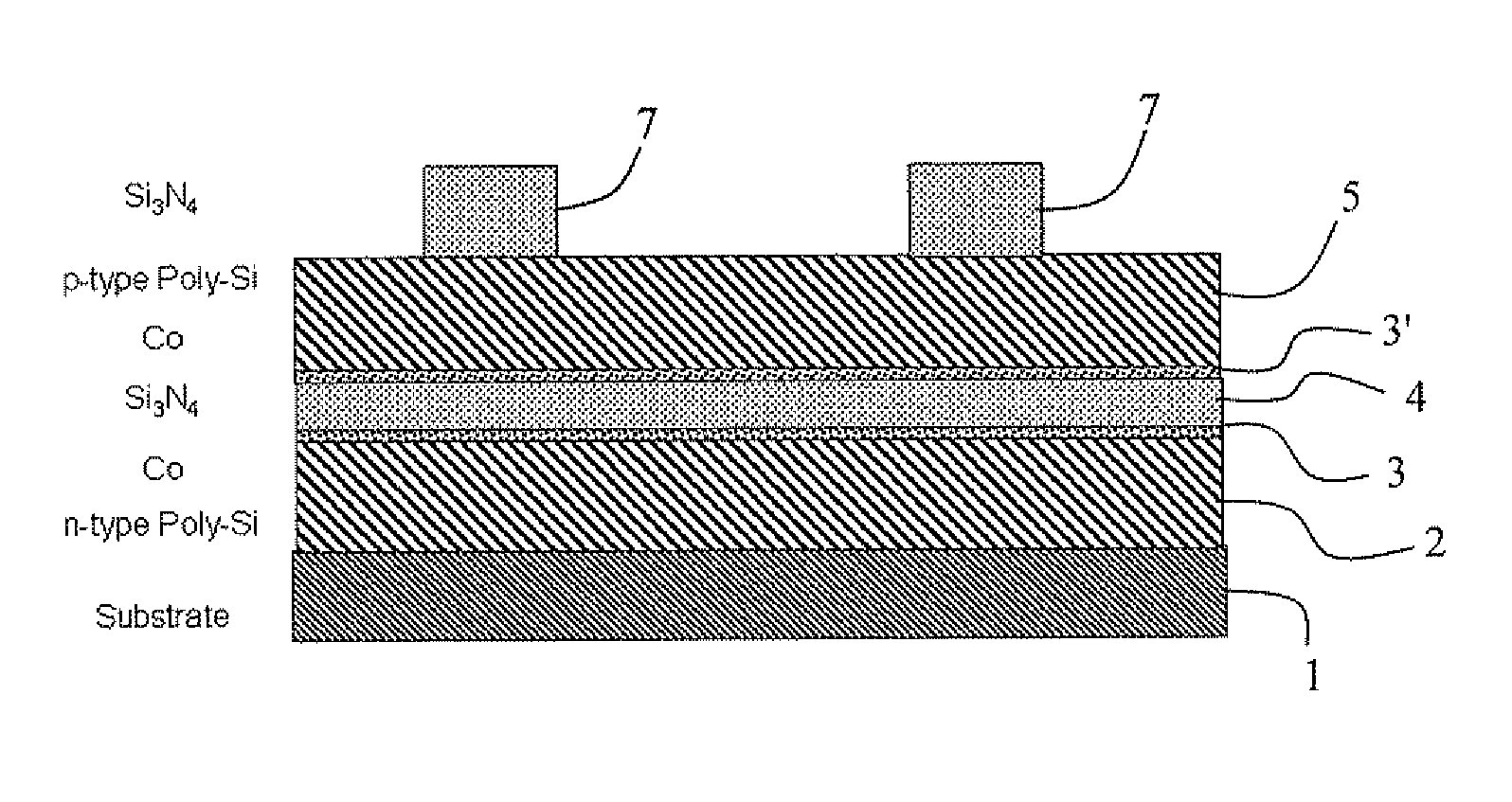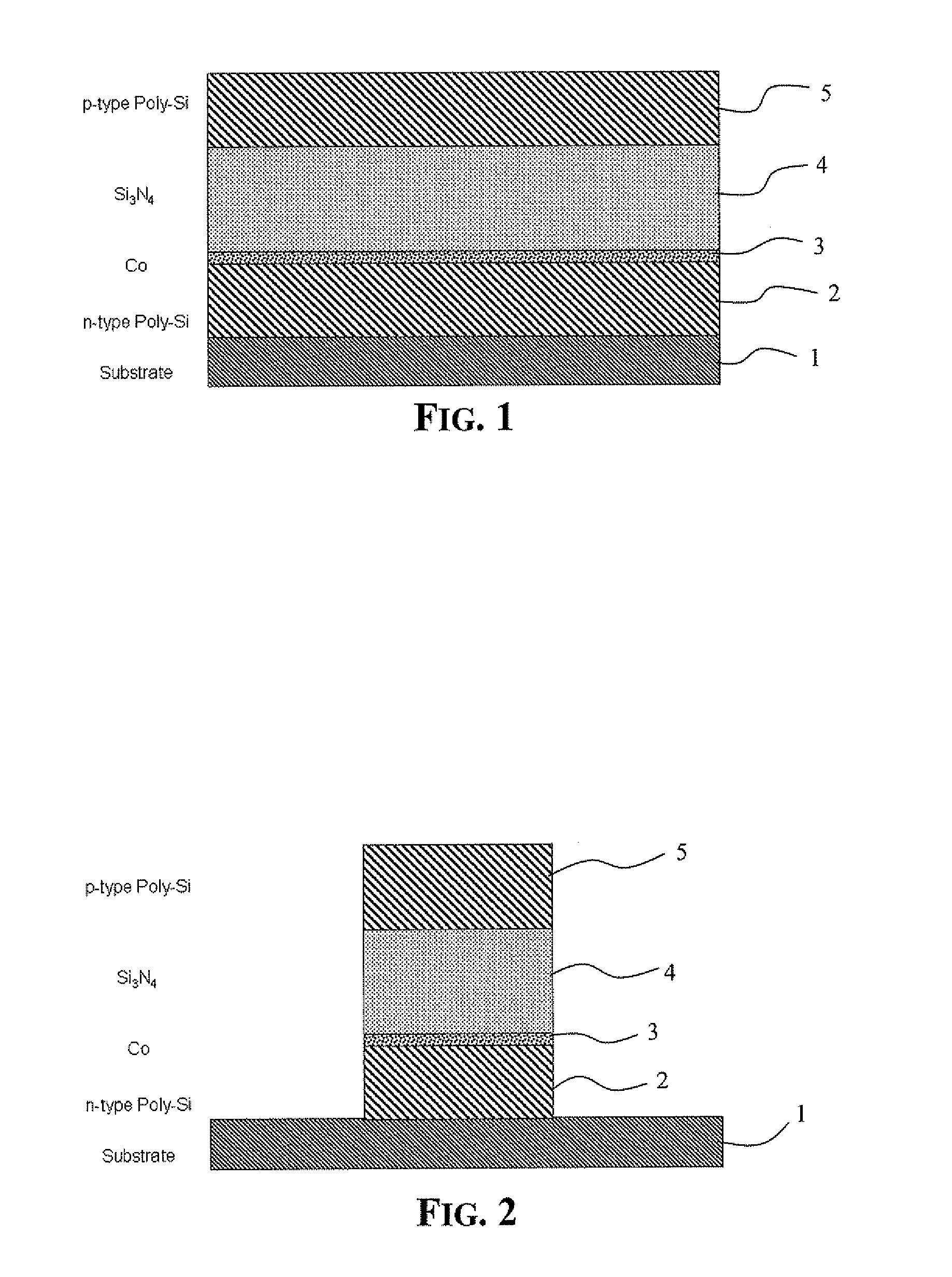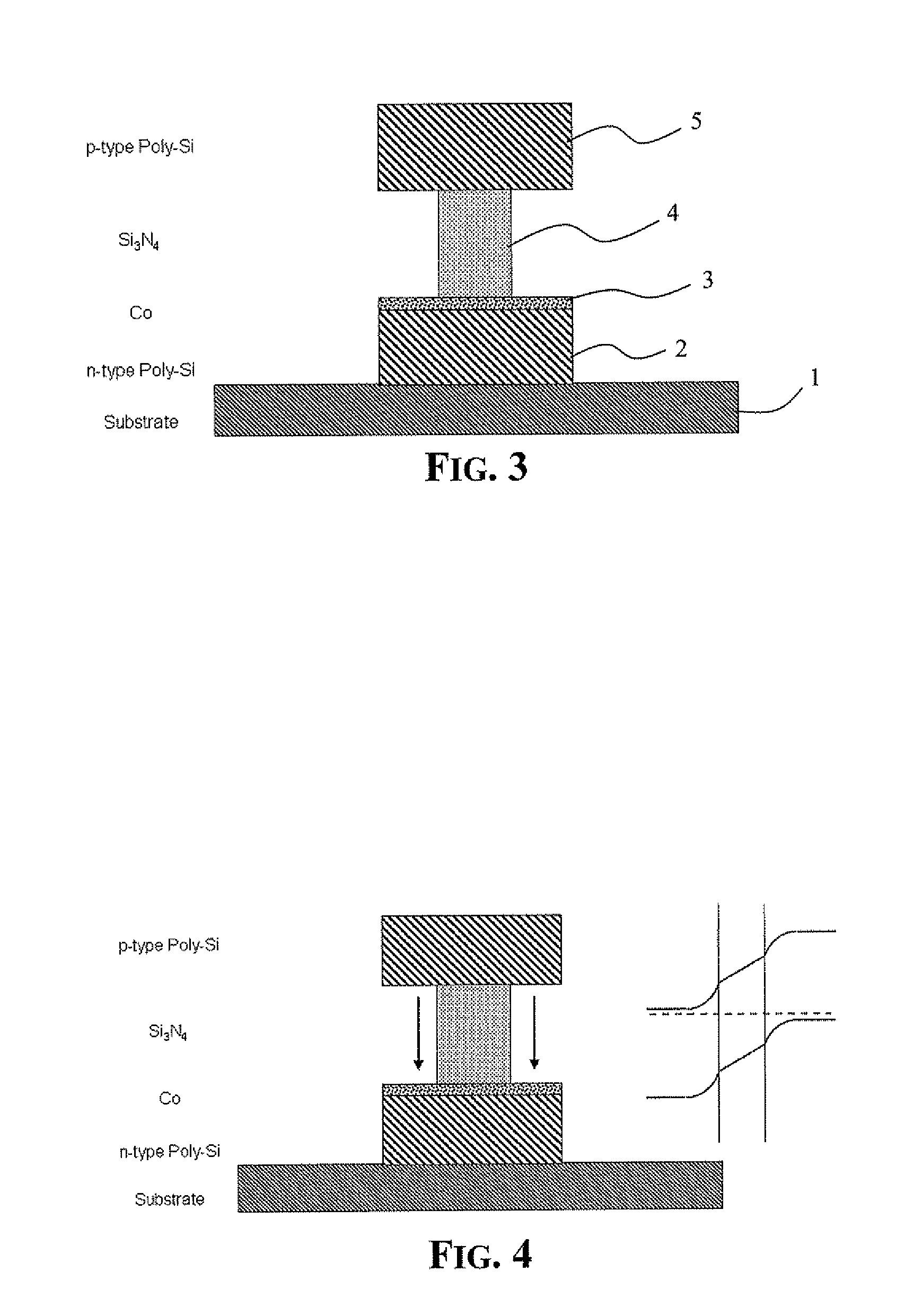Method of fabricating nanosized filamentary carbon devices over a relatively large-area
- Summary
- Abstract
- Description
- Claims
- Application Information
AI Technical Summary
Benefits of technology
Problems solved by technology
Method used
Image
Examples
Embodiment Construction
[0022]The following description made with direct reference to the attached drawings is intended only for illustrative, not limiting, purposes and reports only exemplary embodiments, and, when so-stated, certain preferred choices of materials, techniques and conditions used. The invention may be practiced in many alternative ways to the exemplarily detailed ones, as will immediately appear to the skilled reader.
[0023]FIG. 1 schematically illustrates a basic multilayer stack that may be preliminarily formed for eventually forming a CNT in lithographically definable parts of the so-patterned stack. Although in many specific embodiments of the method, a substrate may not be required. In the exemplary general illustration of FIG. 1, a solid substrate 1 is shown having a generally flat surface. The optional substrate 1 may be of one of innumerable suitable materials such as monocrystalline silicon, polycrystalline silicon, silica, alumina, porous monocrystalline silicon, zeolite sapphire,...
PUM
 Login to View More
Login to View More Abstract
Description
Claims
Application Information
 Login to View More
Login to View More - R&D
- Intellectual Property
- Life Sciences
- Materials
- Tech Scout
- Unparalleled Data Quality
- Higher Quality Content
- 60% Fewer Hallucinations
Browse by: Latest US Patents, China's latest patents, Technical Efficacy Thesaurus, Application Domain, Technology Topic, Popular Technical Reports.
© 2025 PatSnap. All rights reserved.Legal|Privacy policy|Modern Slavery Act Transparency Statement|Sitemap|About US| Contact US: help@patsnap.com



